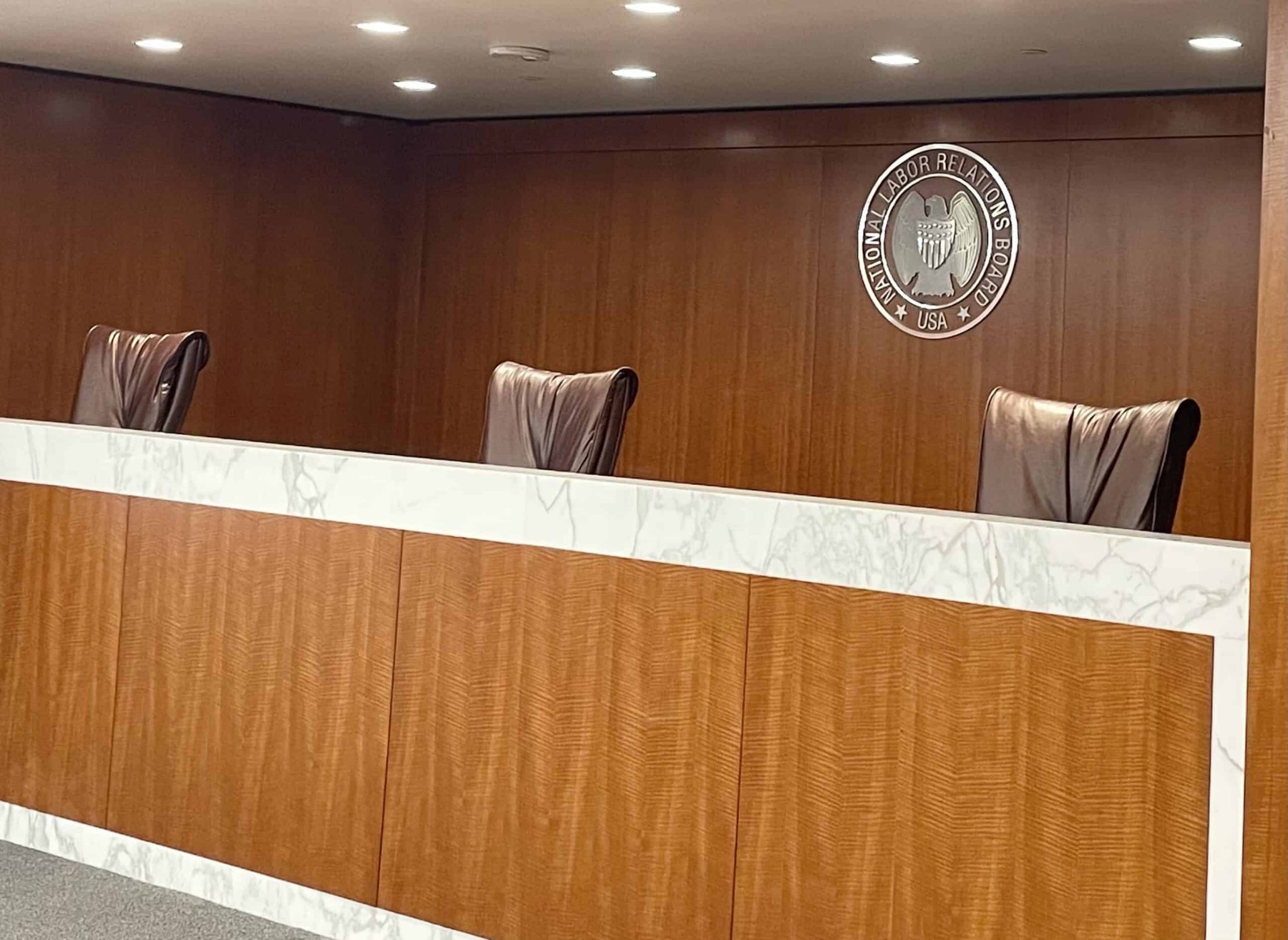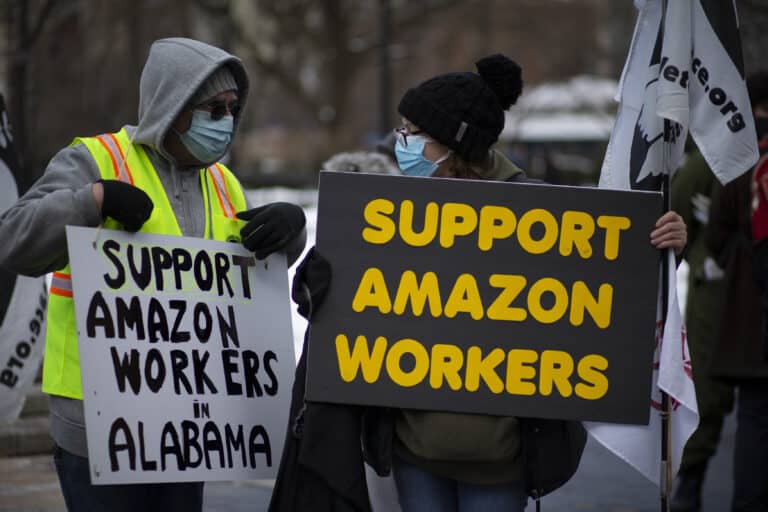
Jason Vazquez is a staff attorney at the International Brotherhood of Teamsters. He graduated from Harvard Law School in 2023. His writing on this blog reflects his personal views and should not be attributed to the IBT.
Last Friday, NLRB General Counsel Jennifer Abruzzo filed a motion for summary judgment in Thrive Pet Healthcare v. International Association of Machinists & Aerospace Workers requesting that the Board order the employer to “make the bargaining-unit employees whole for the lost opportunity to engage in collective bargaining.” The motion has important implications for U.S. labor law; indeed, Abruzzo’s office was sufficiently excited by the development to announce the filing on social media. Fashioning the remedy the motion seeks would require the Board to overturn its decision in the 1970 case of Ex-Cell-O Corp., a move that would substantially expand the agency’s powers to redress, and thereby prevent, an employer unfair labor practice that fundamentally undermines the labor law regime: namely, the refusal to bargain in good faith.
Section 8(a)(5) of the NLRA imposes a duty on an employer to “bargain collectively with the representative of his employees.” Section 8(d) further elaborates that an employer must “meet at reasonable times and confer in good faith with respect to wages, hours, and other terms and conditions of employment.” A subsequent clause of § 8(d), however, cautions that “such obligation does not compel either party to agree to a proposal or require the making of a concession.” In short, then, the Act obligates an employer to bargain “in good faith” with a labor union representing its employees, but does not require that the parties conclude a substantive agreement. It is nonetheless routine for employers to brazenly defy even this limited statutory directive and unlawfully refuse to bargain with a union for months or, often, even years. Although § 10(c) invests the Board with broad authority to fashion remedies designed to effectuate the policies of the Act, the conventional one for 8(a)(5) violations is a meager bargaining order, a prospective-only remedy that achieves little beyond instructing the employer to do something it was already statutorily obligated to do. Such orders, which exemplify the agency’s limited remedial arsenal, something many labor law scholars have lamented, operate to reward and incentivize unlawful delay and frivolous litigation.
In view of these considerations, in 1970 the U.S. Court of Appeals for the D.C. Circuit, noting the “counter-productive” nature of the bargaining order, held that the Board possesses statutory authority to impose a make-whole compensatory remedy for 8(a)(5) violations. Pursuant to such a remedy, an employer that refuses to bargain would be ordered to compensate its employees in an amount calculated to reflect the additional wages and benefits they would have earned had the employer engaged in the good faith bargaining contemplated by the Act. The D.C. Circuit encountered no difficulty finding that § 8(d) does not preclude such relief, reasoning, soundly, that since “a determination of a means of calculating a remedy to compensate for injury sustained” merely “provides money compensation as a remedy for past wrongs,” a make-whole remedy in this context does not amount to “imposing contract terms upon an unwilling employer.”
A few months later, however, the Nixon Board contemplated but “reluctantly” declined to fashion such a remedy in Ex-Cell-O. The agency concluded, in a striking repudiation of the D.C. Circuit’s holding, that it was not statutorily empowered to award the remedy. The Ex-Cell-O Board conceded that “current remedies of the Board designed to cure violations of Section 8(a)(5) are inadequate,” but insisted that adopting a compensatory remedy would improperly compel the recalcitrant employer “to accede to terms never mutually established by the parties.” This, in the view of the Ex-Cell-O Board, would run afoul of the Supreme Court’s then-recent ruling in H.K. Porter Co. that § 8(d) foreclosed the Board from ordering a party to agree to a substantive contractual term. Moreover, the Ex-Cell-O Board found that fashioning a make-whole 8(a)(5) remedy would improperly require it to “engage in the most general, if not entirely speculative, inferences.” Accordingly, in the decades following Ex-Cell-O, the Board has continued to redress unlawful employer refusals to bargain by issuing toothless orders which not only fail to deter but to a large extent reward and incentivize transgression of a provision central to the statutory scheme.
In light of this history, GC Abruzzo identified Ex-Cell-O in the “remarkable and inspiring” remedies memo she issued last September as one area of Board caselaw she was interested in re-examining during her tenure. Consistent with her memo, the GC’s motion in Thrive Pet Healthcare asserts that Ex-Cell-O is “ripe for reconsideration,” and it comprehensively details both the necessity and feasibility of fashioning a make-whole remedy in the failure-to-bargain context.
First, the motion emphasizes that in the years following Ex-Cell-O, other adjudicatory entities—most notably the California Agricultural Labor Relations Board—have successfully issued compensatory remedies in refusal-to-bargain cases. In fact, as the GC points out, the NLRB itself has adopted similar remedies in other contexts; in calculating backpay to remediate a discriminatory discharge, for instance. The GC contends that H.K. Porter has no bearing on the legality of the retroactive make-whole relief envisioned here, for that case involved the narrow question of whether § 8(d) precludes the Board from compelling agreement where the parties themselves are unable to agree. In contrast, the GC reasons, ordering an employer to retroactively compensate its employees for unlawfully failing to bargain would not bind the employer to a particular contractual term. Rather, it would merely conjure a hypothetical contract “in the air” as a means to measure the monetary relief to which the employees are entitled as compensation for the adjudicated violation of their statutory rights. The Ex-Cell-O Board’s central premise, the motion further agues — that issuing a make-whole remedy requires as a precondition finding as a matter of fact that a contract would have resulted from bargaining — amounted to adopting an improper default presumption that absent the employer’s ULPs, a contract would not have been reached. Presuming that collective bargaining would have been fruitless fails to effectuate the policies of the Act.
Lastly, the motion outlines the basic contours of a methodology the Board could use to calculate the relief owed in such situations, which is guided by the practices of the California ARB. Under the Board’s proposed framework, decisionmakers would compile and analyze CBAs negotiated in comparable bargaining units, so-called “comparator contracts,” to serve as a basis from which to project the monetary value of the employees’ lost opportunity to bargain.
*
The GC’s Thrive Pet Healthcare motion potentially portends a significant expansion of the Board’s remedial powers, one that would enable the agency to more meaningfully redress and deter an unlawful employer practice which fundamentally undermines the collective bargaining process. Although an exciting development, it of course remains to be seen whether Abruzzo’s legal arguments will be accepted by a majority on the Board—not to mention by the federal appellate judge who will ultimately be tasked with assessing the legality of any Board order which may emerge awarding the relief she urges.










Daily News & Commentary
Start your day with our roundup of the latest labor developments. See all
July 11
Regional director orders election without Board quorum; 9th Circuit pauses injunction on Executive Order; Driverless car legislation in Massachusetts
July 10
Wisconsin Supreme Court holds UW Health nurses are not covered by Wisconsin’s Labor Peace Act; a district judge denies the request to stay an injunction pending appeal; the NFLPA appeals an arbitration decision.
July 9
the Supreme Court allows Trump to proceed with mass firings; Secretary of Agriculture suggests Medicaid recipients replace deported migrant farmworkers; DHS ends TPS for Nicaragua and Honduras
July 8
In today’s news and commentary, Apple wins at the Fifth Circuit against the NLRB, Florida enacts a noncompete-friendly law, and complications with the No Tax on Tips in the Big Beautiful Bill. Apple won an appeal overturning a National Labor Relations Board (NLRB) decision that the company violated labor law by coercively questioning an employee […]
July 7
LA economy deals with fallout from ICE raids; a new appeal challenges the NCAA antitrust settlement; and the EPA places dissenting employees on leave.
July 6
Municipal workers in Philadelphia continue to strike; Zohran Mamdani collects union endorsements; UFCW grocery workers in California and Colorado reach tentative agreements.